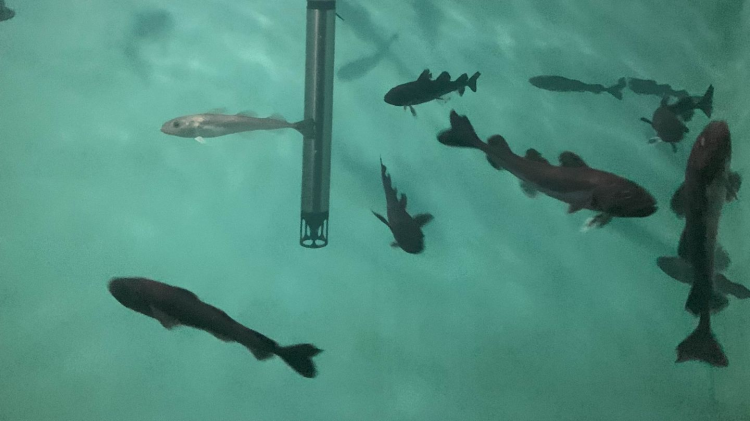The more we hear, the more we know, and grunts from the Arctic cod are providing University of Victoria scientists with clues about the Northern species.
The grunting sound, first discovered by former UVic research associate Amalis Riera in 2017, is now the focus of a multi-pronged research project, led by fisheries ecologist Francis Juanes, that aims to advance Arctic cod conservation efforts. The grunt is also at the center of the Codcast, a new four-episode podcast series that launches on Tuesday, April 15.
"As the Arctic is changing, we're struggling to monitor or even get a good baseline understanding of current Arctic cod population health using traditional survey methods," says Juanes, Liber Ero Chair for Fisheries Research. "Our ultimate goal is to gain a strong enough understanding of Arctic cod sounds to be able to employ passive acoustics to monitor and track the population."
Researchers in the Juanes Lab are working to describe the Arctic cod sounds, identify how the sounds are being used, answer questions around seasonality, especially as it relates to spawning, and determine the physiology of how the sound is produced. The podcast interweaves background information on fish sounds, ocean noise pollution and conservation applications with updates on the research project to date.

Arctic cod swimming in a tank near a hydrophone, which is recording any noises they make. Credit: Shaye Ogurek
Juanes hopes that the knowledge his lab is generating about the Arctic cod grunts allow for the use of passive acoustics to monitor and track the population. Researchers could then estimate population size, monitor activities, determine spawning patterns and assess overall health of the Arctic cod population without the need for a human presence.
With climate change predicted to cause a decline in suitable habitat, increased competition with other fish species and an increase in noise pollution in the Arctic, a better understanding of Arctic cod could help bolster conservation efforts, identifying critical habitats that need protection and informing regulations and policies to manage ocean noise.
The story of the discovery of the Arctic cod grunt and what the research team has learned about the sound so far is available on all podcast apps, including Spotify and Apple Podcasts.
This research was supported by the North Pacific Research Board, in addition to other funding.












